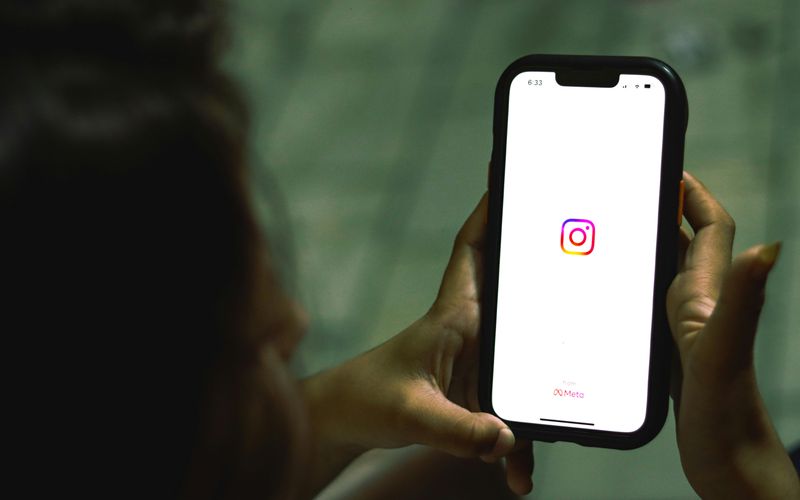Ever felt like someone was secretly checking if you’re truly loyal? Most people don’t openly question your commitment – they test it in quiet, sneaky ways. These hidden loyalty tests happen in friendships, romantic relationships, and even at work. Understanding these subtle signals can help you recognize when you’re being tested and respond in ways that strengthen your relationships.
1. Sharing Fake Secrets
Someone tells you something “confidential” that isn’t actually a secret at all. They’re watching to see if you’ll keep it to yourself or spread it around. This classic trust test works because the person can easily track whether their fake secret stays contained.
Friends might casually mention something with a “don’t tell anyone” tag attached, then wait to see if it circulates back to them through the grapevine. When you pass this test by keeping information private, you demonstrate that your word means something.
2. Canceling Plans Last Minute
Your reaction to canceled plans reveals volumes about your friendship commitment. When someone repeatedly bails at the last second, they might be checking if you’ll still be there when they actually need you. Your response – anger, understanding, or indifference – tells them everything.
People who test this way watch for patterns in how you handle disappointment. Do you make excuses for them? Do you hold grudges? The way you navigate these frustrating moments signals whether you value the relationship enough to weather inconveniences.
3. Creating Artificial Competition
A friend or partner suddenly mentions how much time they’re spending with someone new. They casually drop this person’s name into conversations or highlight their positive qualities. This isn’t a coincidence – they’re gauging your reaction.
Jealousy tests reveal insecurities but also measure how much you value exclusive access to someone. The tester watches for signs of possessiveness, concern, or indifference. Your balanced response – showing interest without intense jealousy – demonstrates healthy attachment and confidence in the relationship.
4. Withholding Information
Notice someone suddenly becoming vague about their plans or activities? They might be testing your curiosity and investment. By sharing less, they’re checking if you’ll make efforts to stay connected or simply drift away when information isn’t freely given.
This subtle test measures how much you value staying in the loop of their life. Will you ask thoughtful follow-up questions? Or accept the new communication gap? People who feel secure don’t need to perform this test, but those with abandonment concerns often do.
5. Asking for Small Favors
Small requests might seem innocent, but they sometimes serve as loyalty barometers. A coworker asks you to cover for them, a friend needs a ride across town, or someone wants to borrow something valuable. These requests measure your willingness to be inconvenienced.
The favor itself isn’t the point – your response is. People watch whether you help grudgingly, enthusiastically, or not at all. They notice if you expect immediate repayment or give freely. These minor exchanges build a picture of how reliable you’ll be during major crises.
6. Watching Your Response to Criticism
Someone suddenly criticizes your choices, appearance, or opinions and carefully monitors your reaction. This isn’t random negativity – it’s a calculated test of how you handle challenging feedback about yourself and whether you’ll still maintain the relationship afterward.
Defensive reactions or immediate distance signals fragility. Thoughtful consideration followed by honest conversation shows emotional maturity. The tester wants to know: will you abandon ship at the first sign of conflict? Or can you navigate rough waters together?
7. Monitoring Your Social Media Behavior
Your online activity speaks volumes about your priorities. Someone might be quietly tracking whether you like their posts, how quickly you respond to their messages, or if you publicly acknowledge your connection. They’re building a loyalty profile based on your digital footprint.
Do you engage more with others’ content than their? Do you share personal news with everyone before telling them privately? The modern loyalty test happens through screens, measuring not just what you say, but what you do when no one seems to be watching.
8. Introducing You to Their Inner Circle
Being invited to meet important people in someone’s life isn’t just social – it’s strategic. They’re watching how you interact with their family, close friends, or trusted colleagues. Your behavior in these settings reveals your commitment level to the relationship.
Are you respectful and engaged? Do you make genuine efforts to connect? The way you treat the people they care about becomes a direct reflection of how you value them. Many people consider this the ultimate loyalty test – seeing if you’ll invest in their broader world.
9. Fishing for Compliments
“Does this outfit look terrible on me?” When someone repeatedly seeks reassurance, they’re testing your supportiveness. They want to know if you’ll offer genuine encouragement during moments of insecurity or simply brush off their concerns.
The frequency of these requests often increases when someone feels uncertain about where they stand with you. Your patience with these validation needs speaks to your emotional investment. Loyal friends recognize the request beneath the question – not just for compliments, but for consistent support.
10. Sharing Unpopular Opinions
Someone suddenly reveals controversial views on politics, religion, or sensitive topics. This bold move tests whether your connection can withstand ideological differences. Will you reject them for thinking differently, or maintain the relationship despite disagreements?
The tester watches not just what you say, but how you say it. Do you immediately shut them down? Try to understand their perspective? The way you navigate these tricky conversations reveals whether your loyalty extends beyond comfort zones into challenging territory where real relationships are built.
11. Creating Artificial Emergencies
Late-night calls for help. Urgent requests that seem slightly exaggerated. Some people manufacture mini-crises to see who shows up when needed. These aren’t always conscious tests, but they reveal who prioritizes your needs when inconvenient.
The person calling at 11 pm with car trouble is partly checking: will you answer? Will you help? Your response pattern builds their trust inventory. While chronic emergency-creators can be exhausting, recognizing these moments as trust-building opportunities helps frame them as relationship investments rather than manipulations.
12. Observing How You Talk About Others
Your words about absent friends reveal your character. People listen carefully when you discuss mutual connections, using these moments to predict how you’ll speak about them when they’re not around. This silent assessment happens in every social circle.
Do you share private information? Criticize harshly? Defend those not present? The loyalty observer collects this data without announcing their test. They know that someone who readily betrays others’ confidences will likely do the same with theirs. Your consistent respectfulness toward the absent speaks louder than direct promises.












